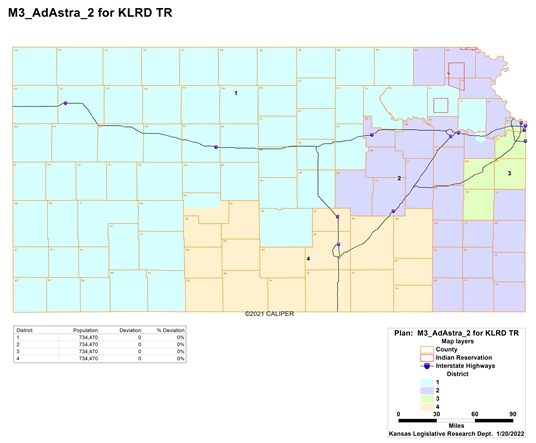by Noah Taborda, Kansas Reflector
Topeka — The Kansas Senate gave the tentative green light Thursday to a massive bundle of tax credit incentives for aerospace and aviation programs, housing investments, teacher supplies and income tax while declining to provide a $250 rebate to all Kansans.
Senate Bill 282 began the debate as a tax credit estimated to cost the state $7.9 million by allowing employers in the aviation industry to write off tuition costs or certain program fees for a qualified employee beginning in 2023. Employees would be a graduate of an accredited engineering program, or an associate of an applied science degree program or a career technical program.
This credit would be capped at 50% of the tuition reimbursement paid and could be claimed each year, for up to the fourth year of employment.
The bill would also create a nonrefundable tax credit for taxpayers equal to 10% of the compensation paid to qualified employees in each of their first five years of employment, not to exceed $15,000 per year.
Sen. Gene Suellentrop, R-Wichita, said the measure was important to bring Kansas level with Oklahoma, which has been pushing aerospace development.
“If we’re not careful, they can take a good part of McConnell Air Force Base and our entire aviation production and haul it down south in a very short order,” Suellentrop said. “Their governor has worked with their legislature to create similar tax credit programs. So, this is not something new. This is used in the industry.”
Additionally, the bill would create a nonrefundable tax credit for taxpayers who become qualified employees during the year. Employees with income tax liability less than $5,000 would be eligible to carry any unused credit forward for up to four years.
Several other legislators piggybacked on the tax credit, proposing ideas of their own. Sen. Robert Olson, R-Olathe, brought a pair of housing tax credits and tacked them on with Senate approval.
The main credit, established in the Kansas Housing Investor Tax Credit Act, would allow any financial institution, project builder and developer who makes cash investment in some housing projects to claim a tax credit.
Under the act, the director of the Kansas Housing Resource Corporation can issue credits up to $35,000 per residential unit in a county with a population no more than 8,000; up to $32,000 per unit in a county with a population greater than 8,000 but not more than 25,000; and up to $30,000 per resident for all other qualified housing projects.
Sen. Jeff Pittman, D-Leavenworth, said he was concerned it did not include areas of high growth in northeast Kansas but still supported the measure.
“We need new housing in the state of Kansas, we need workforce development, and we need affordable housing in our counties out there across the state,” Pittman said.
Sen. Alicia Straub, R-Ellinwood, saw other issues in her area, like senior citizens on a fixed income struggling to afford the homes they have owned for years because of high taxes.
“I would support a reduction in taxes for all Kansas residents, not just picking winners and losers with builders and certain developments,” Straub said.
The only amendment to fail was an offer from Senate Minority Leader Dinah Sykes to include a $250 tax rebate for all single filers and $500 for married Kansas residents. The idea is part of the governor’s proposed budget.
Sen. Caryn Tyson, R-Parker, shut down the amendment quickly.
“It may sound good on the surface, but this is not the way to promote economic development or good sound tax policy,” Tyson said. “We’ve seen that behavior at the federal level. It was not the results that we would have liked to have seen.”
Another amendment adds another option to the Homestead Property Tax Act for Kansans aged 65 years or older or disabled veterans.
The final amendment, introduced by Sen. Virgil Peck, R-Havana, would increase the amount of the residential exemption of the 20-mill property tax levy from $20,000 of valuation to $65,000. It would also allow that amount to increase in future years.
The amendment drew some worry from Sen. Marci Francisco, D-Lawrence, about the impact this may have on the school finance formula.
“My concern is there would be less property tax available so more of that funding would come from our state general fund than from the property taxes collected,” Francisco said. “I would just hope before I voted on this that I would have a better understanding of those numbers.”
Kansas Reflector stories, www.kansasreflector.com, may be republished online or in print under Creative Commons license CC BY-NC-ND 4.0.
See more at https://kansasreflector.com/2022/03/07/tax-credit-bundle-promoting-housing-aerospace-education-gets-preliminary-kansas-senate-nod/


